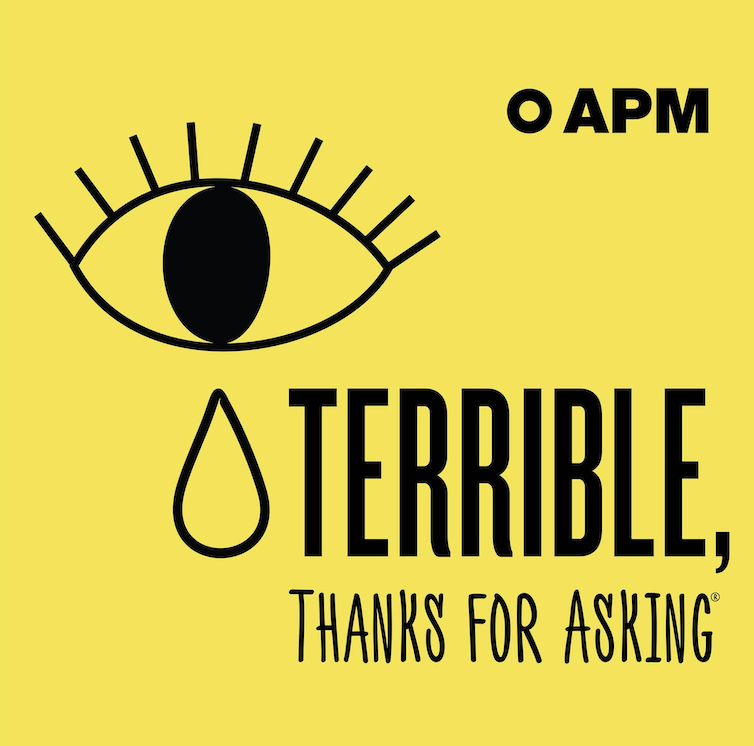Four essential podcasts on mental health
Mental health is often regarded as a taboo topic — there’s not only a stigma surrounding the validity of mental illnesses and the value of therapy, but also many difficulties that can come with having conversations about wellness. Podcasts, however, offer an intimate space for personal storytelling and open discussion. These four audio shows serve to normalize mental health and teach lessons about improving wellness in daily life.
Terrible, Thanks for Asking

Nora McInerny knows what it is like to deal with grief. In late 2014, she miscarried her second child. Just five days later, her father died of cancer. And six weeks after that, her husband also lost his battle to cancer.
Her podcast “Terrible, Thanks for Asking” starts with her personal story of loss and mourning as she approaches the two-year anniversary of her husband’s death in 2016. She talks about raising a son who will grow up without any memories of his father, the confusing process of finding love after loss and how grief brought laughter as often as it brought tears.
In each episode, McInerny explores a guest’s experience with trauma, mental illness or loss through narrative storytelling and interviews. McInerny’s writing is earnest and perceptive, but she also brings levity and hope to every conversation — as much as the episodes are about dealing with intense emotions and experiences, they’re also about finding support, community and happiness beyond those experiences.
The podcast isn’t afraid to find the intersections between mental health issues and conversations in the national news. Most recently, it featured a three-episode arc about the Tree of Life synagogue shooting in Pittsburgh, Penn., which discussed how tragedy affects a community.
The Hilarious World of Depression

In the cold open for every episode of “The Hilarious World of Depression,” host John Moe asks his comedian guests, “Is depression funny?”
His guest on the first episode — Peter Sagal, host of the NPR news comedy quiz show “Wait Wait Don’t Tell Me” — answers in a way that effectively sums up the conceit of Moe’s podcast: “I think it’s funny in the way that death is funny in that it’s not, but you cope with it by laughing.”
Moe, a humorist and depressive himself, interviews a comedian who has been dealing with depression on each episode. Comedians are storytellers at heart. The ability to find humor in mental health issues, especially given their negative stigma, is vital to advancing conversations surrounding depression that provide positive tools for support and encouragement.
Mental health can often be something of an enigma, and “The Hilarious World of Depression” serves to make it less mysterious by exploring individual experiences in ways that are approachable and honest.
The podcast can be comforting for those dealing with depression, but it’s perhaps even more important for individuals to best understand what their depressed friends or colleagues are going through.
Invisibilia

This NPR podcast, hosted by psychology reporters Alix Spiegel and Hanna Rosin, approaches mental health and human behavior from a scientific perspective. “Invisibilia,” Latin for “invisible things,” dives headfirst into the often frustratingly invisible aspects of mental health by marrying fascinating human stories with logic-based brain science.
The stories “Invisibilia” tells often feel like they’re taken from a science fiction novel — on the episode “Fearless,” the hosts explore the case of a woman who, psychologically, cannot feel fear. On the episode “The Remote Control Brain,” they chronicle the tale of a woman who was part of a psychiatric trial where doctors implanted a device in her brain to help her moderate her severe mental illness, giving her the ability to control her mood at any time with the click of a button.
While the stories are often at the edge of human possibility and scientific wonder, they have implications for daily life. “Fearless” offers approaches to removing fear from one’s own life, while “The Remote Control Brain” discusses simple ways individuals can manage their daily mood.
The audio format serves “Invisibilia” well — through artistic sound design, Rosin and Spiegel are able to give life to those “invisible things.”
Happier with Gretchen Rubin

Mental health is about more than just dealing with anxiety, depression or other illnesses. “Happier” offers everyday self-care and mindfulness strategies aimed at increasing happiness. Host Gretchen Rubin is an expert in human happiness — she’s written multiple books on the topic and brings a humor and clarity to wellness communication that makes her a perfect podcast host.
The podcast is refreshingly simple — each episode is a conversation between Rubin and her sister Elizabeth Craft, with segments like “Try This at Home” and “Happiness Hack.”
Rubin and Craft share the kind of chemistry that only exists between sisters, and both have a sense of childlike enthusiasm that bolsters the show. Because “Happier” forgoes the sometimes pedantic and overly produced nature of many podcasts today, just listening to the relaxing, slow-paced show is a form of mindful self-care on its own.
The atmosphere of simplicity the show creates carries into its content — “Happier” never asks you to make major life changes or present grand gestures. It’s all about incorporating self-awareness through effortless practices, like allowing oneself to enjoy moments of complete silence or taking time to delete apps from your phone that are more detrimental than beneficial.

